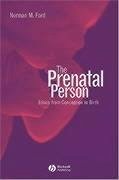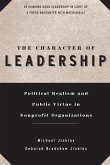This text addresses the host of ethical questions that has arisen recently in response to the development of new reproductive technologies. Addresses the ethical questions which have arisen in response to new reproductive technologies. Helps students of theology, philosophy and health studies, as well as lay readers tackle these issues. Provides readers with relevant medical and scientific facts. Explains how different metaphysical frameworks affect the ways in which people solve these ethical problems. Topics covered include human embryo and embryonic cell stem research, infertility and its treatments, and prenatal screening and diagnosis. The author takes a balanced approach, acknowledging his loyalty to Catholicism, yet exploring freely the new options provided by advancing biological science.
Hinweis: Dieser Artikel kann nur an eine deutsche Lieferadresse ausgeliefert werden.
Hinweis: Dieser Artikel kann nur an eine deutsche Lieferadresse ausgeliefert werden.
"The Prenatal Person is a welcome contribution to dialoguebetween adherents of Christian and secular approaches tocontroversial bioethical issues about the beginning of human life.It is refreshing to find a Catholic scholar addressing these issuesin a way that does not rely heavily on religious teachings thatonly a Catholic could be expected to accept. This is a book I willrecommend to my students, so that they can consider a reasonedapproach that is very different to my own." Peter Singer,Princeton University
"...there are many useful insights and The PrenatalPerson is helped by attention to detail in medical matters."The Tablet
"...there are many useful insights and The PrenatalPerson is helped by attention to detail in medical matters."The Tablet








